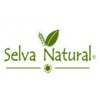Category
- Slimming
- Capsules
- Diabetes and Cholesterol
- Natural Extracts
- Filtering
- Gynecology
- Multivitaminicos
- Healthy Packs
- Female Sexual Potency
- Male Sexual Potency
- Restorative Regenerators
- Digestive system
- Sistema Hepatico
- Immune system
- Nervous system
- Bone and Skin System
- Respiratory system
- Urinary system
- Supplements
Sales
-
Abee Med
S/120.00S/99.99 -
BioProst 20 Capsules For Men
S/160.00S/59.99 -
HGH Releasing Support 90 cápsulas Xtralife
S/150.99S/147.99 -
Super Hydrolyzed Collagen
S/120.00S/95.00 -
Erectmax Premium X30 (Tabletas) Litopharma
Rated 5.00 out of 5S/60.00S/49.99 -
Powersex
S/PowersexS/38.99
Artichoke in Natural Forest Capsules (100 x 500mg.)
S/24.99
Prostate anti-inflammatory, Treats gastritis problems, Contains hypoglycemic properties, Natural antioxidant.
Globe artichoke grows to 1.5-2 m tall, with about 0.5 m long, arching, deeply lobed, silver-green leaves. Its flower bud, known as the "balloon," forms closely grouped triangular scales arranged in a spiral around the central "strangler." If left alone, a beautiful light pink to purple flower appears out of this globe (bud).
Each artichoke balloon measures approximately 6-10 cm in diameter and weighs approximately 150 g. Fuzzy, immature florets in the center of the shoot constitute its “strangler”. These are edible in older and larger flowers. The edible portion of the shoots consists mainly of the fleshy lower portions of the involucre bracts (triangular scales) and the base, known as the “heart”.
Cardoons (Cynara cardunculus) are species closely related to artichokes. However, unlike artichokes, where their flower buds were sought after part of the plant, the blanched leafy stems are the edible portions in thistles.
Various artichoke cultivars grown and categorized based on their size, color, and backbone.
- Green color, large size,
- Green color, medium size,
- purple color, large size,
- Purple in color, medium in size,
- column variety
Artichoke Health Benefits:
The globe artichoke is low in calories and fat; 100 g of this flower bud only has 47 calories. However, it is one of the best sources of dietary fiber and antioxidants. Provides 5.4 g per 100 g, approximately 14% RDA fiber. Dietary fiber helps control constipation conditions, lowers bad or "LDL" cholesterol levels by binding to it in the intestines, and helps reduce the risks of colon cancer by preventing the absorption of toxic compounds in food.
The artichoke contains bitter principles, cynarin and sesquiterpene-lactones. Scientific studies show that these compounds not only inhibit the synthesis of cholesterol but also increase its excretion in the bile and thus help in the overall reduction of total cholesterol levels in the blood.
Fresh artichoke is an excellent source of the vitamin, folic acid; provides approximately 68 μg per 100 g (17% of the recommended daily amount). Folic acid acts as a co-factor for enzymes involved in DNA synthesis. Scientific studies have shown that adequate levels of folate in the diet during the preconception period and during early pregnancy can help prevent neural tube defects in the newborn baby.
Fresh globes also contain moderate amounts of the antioxidant vitamin; Vitamin C (Provides approximately 20% of recommended levels per 100g). Regular consumption of foods rich in vitamin C helps the human body build resistance against infectious agents and remove harmful and pro-inflammatory free radicals from the body.
It is one of the good plant sources of vitamin K; provide approximately 12% DRI. Vitamin K plays a vital role in bone health through promoting osteotropic activity (bone formation). Adequate levels of vitamin K in the diet help limit neuronal damage in the brain. Therefore, they have a valuable role in treating Alzheimer's disease patients.
YOU MAY ALSO LIKE: Garlic in Natural Selva Capsules (100 x 500mg.)
It is also a good source of antioxidant compounds such as silymarin, caffeic acid, and ferulic acid, which help protect the body from harmful free radical agents. The total measurable antioxidant strength (ORAC) of artichokes (globe or French) is 6552 μmol TE / 100 g.
It is also rich in the B group of vitamins such as niacin, vitamin B-6 (pyridoxine), thiamine, and pantothenic acid that are essential for optimal cellular metabolic functions.
In addition, the artichoke is a rich source of minerals such as copper, calcium, potassium, iron, manganese, and phosphorus. Potassium is an important component of cellular and body fluids that helps control heart rate and blood pressure by counteracting the effects of sodium. Manganese used by the human body as a cofactor for the antioxidant enzyme, superoxide dismutase. Copper is required in the production of red blood cells. Iron helps in the synthesis of red blood cells in the bone marrow.
Additionally, it contains small amounts of flavonoid antioxidant compounds such as beta-carotene, lutein, and zeaxanthin.
Mark: Natural Jungle™
Presentation: 500mg capsules. x 100 units.
How to use: 1 or 2 capsules with food 3 times a day (breakfast, lunch and dinner).
Route of administration: Oral.
Related products
-
PRO5 X120 And (Cápsulas) Bionaturista
S/37.99Add to cartClick to rate this entry! (Votes: 0 Average: 0) Health…
-
Achiote Cats Forte
S/59.99S/44.99Add to cartAchiote cats Forte promotes sexual health. It maintains healthy prostate functions, stimulates the free flow of urine, acts as an anti-inflammatory and is a modulator of the immune system.
-
Achiocat Capsules
S/42.99S/36.99Add to cartIt is a product that contains diuretic, purifying, anti-inflammatory action, its powerful concentrate cleanses and detoxifies the prostate.
-
Achiote X120 And (Cápsulas) Bionaturista
S/37.99Add to cartClick to rate this entry! (Votes: 0 Average: 0) Protection…
Best Deals
Join without risk
Refund in 24 hours maximum.
100% sure
Safe shopping.
24x7 support
Online 24 hours.
Best Deals
Buy now.
Shipments
To the whole country.
What's new?



TOP products
-
Jenjibre X100 And Capsulas Naturalmaxx S/33.99
-
Hyr Herbal Maxx X100 and Capsulas Naturalmaxx S/33.99
-
Huanarpo Male X100 And Naturalmaxx Capsules S/33.99
-
Hercampure Maxx X100 and Capsulas Naturalmaxx S/33.99
-
Hepton Herbal X100 And Capsulas Naturalmaxx S/33.99
-
Graviola X100 And Capsulas Naturalmaxx S/29.99
-
Glucozhamine X100 and Capsulas Naturalmaxx S/38.99
-
Ginseng X100 And Capsulas Naturalmaxx S/38.99























